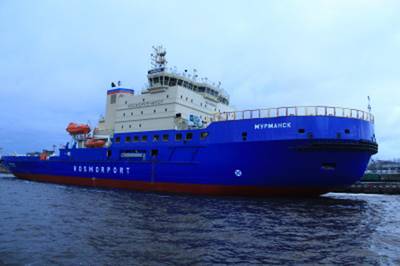A Floating Storage Regasification Unit (FSRU) will be built to the class of Russian Maritime Register of Shipping (RS). The agreement on classification of FSRU under construction has been signed between RS and Hyundai Heavy Industries, the Republic of Korea.
According to Georgy Bedrik, Head of the RS Planning and Marketing Division, one of the key features distinguishing the FSRU from other gas carriers built to the RS class involves the LNG regasification system, systems for LNG loading from other LNG carriers as well as export of the regasified product to shore. The substantial advantage of such ships consists in possibility to supply gas to consumers bypassing the phase of cargo handling at onshore regasification terminals. The time frames of construction of a FSRU and its commissioning works are generally much shorter than construction of an onshore LNG terminal.
He also said that FSRU classification is a follow-up of the RS classification activities for LNG carriers construction being carried out since 2011. At present, the level of RS competence allows the organization to carry out survey of ships of any complexity, including high-tech vessels to transport hydrocarbons in the Arctic and other freezing seas.
RS will carry out survey during construction of the FSRU in compliance with the RS Rules, as well as other applicable national and international requirements. RS class notation: КМ✪ Arc4 AUT1-ICS OMBO EPP ANTI-ICE LI CCO ECO-S BWM (E-S) WINTERIZATION (-30) GFS Gas carrier type 2G (methane). The ship will be foreseen with anti-icing protection means to ensure its continuous operation at low temperatures (down to – 30 C). The Arc4 ice class will enable the ship navigation in the average one-year ice up to 0.9 m thick in summer and autumn.
FSRUMain particulars:
Length, oa. 287m
Breadth 46.4m
Draft 26.4
Deadweight 82,140 t
GT 119,100
Main engine 2 х 11,700 kW;
Auxiliary engines 2 х 5,850 kW;
LNG storage capacity 174,100 cu m.
The ship is being built for OOO Gazprom Flot. The delivery of the ship to the customer is scheduled by the end of 2017.

